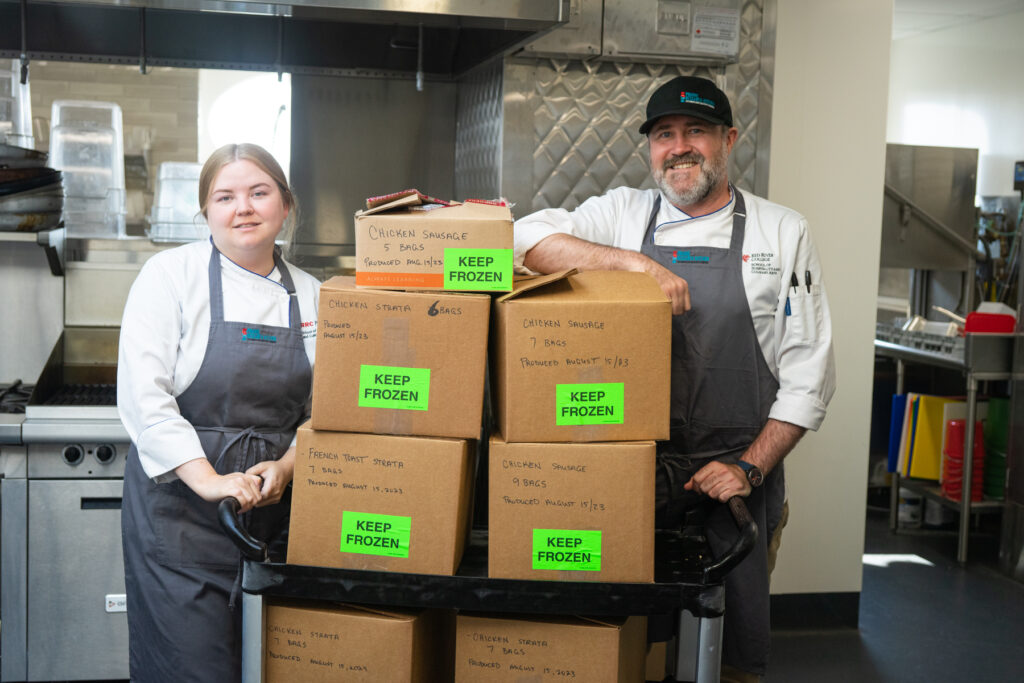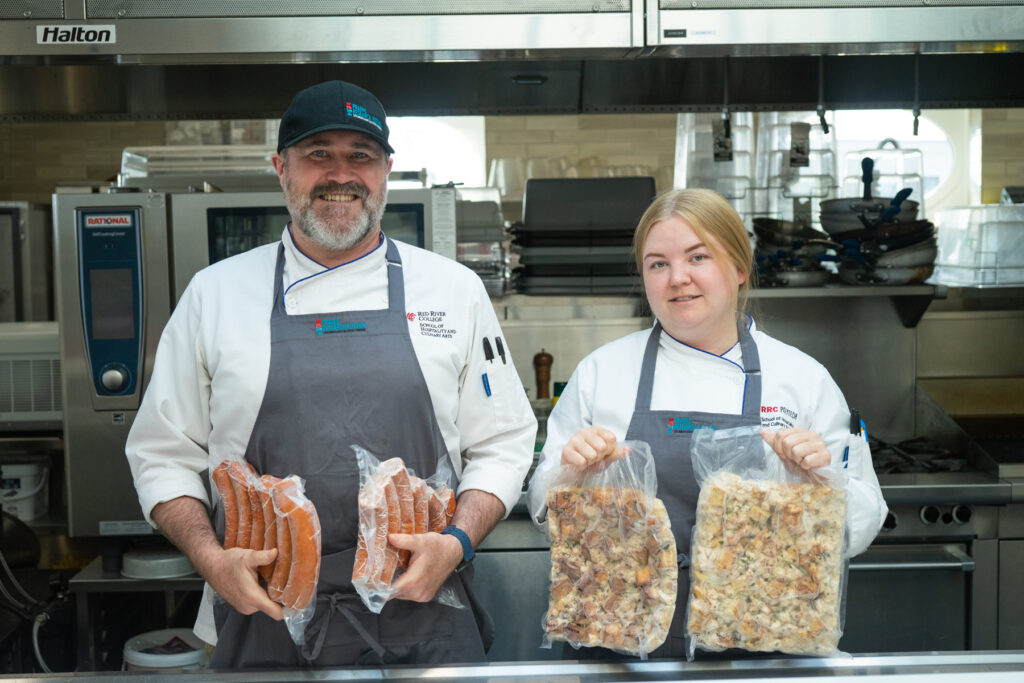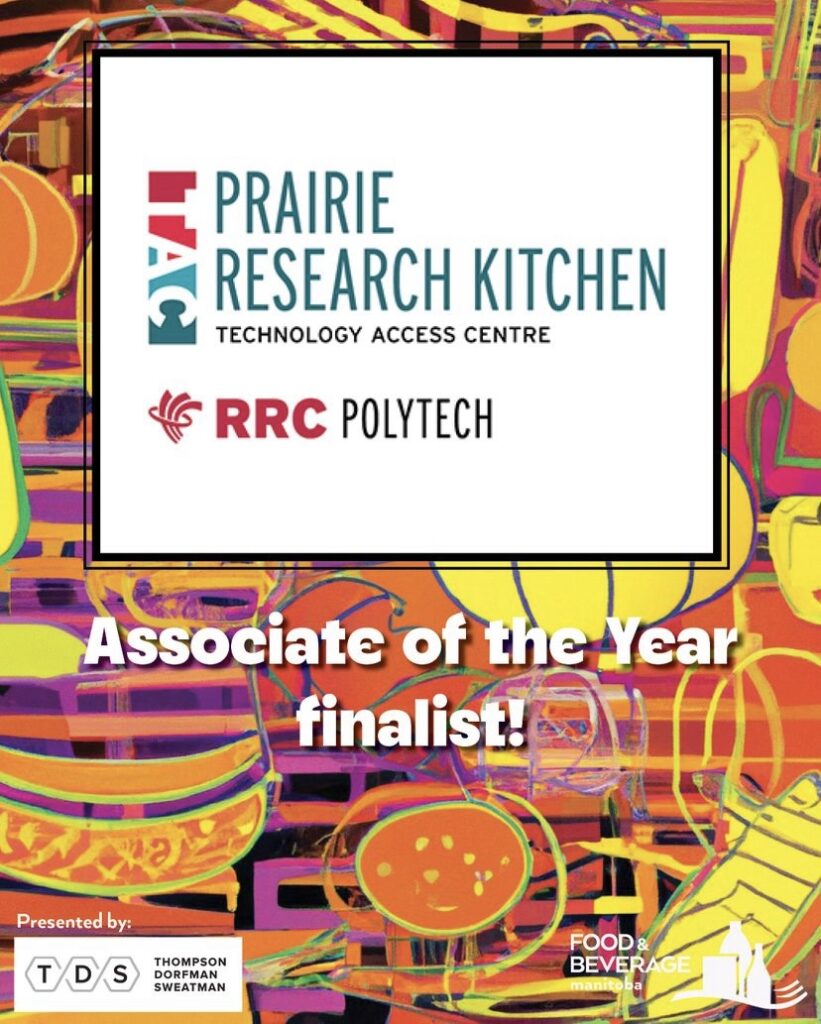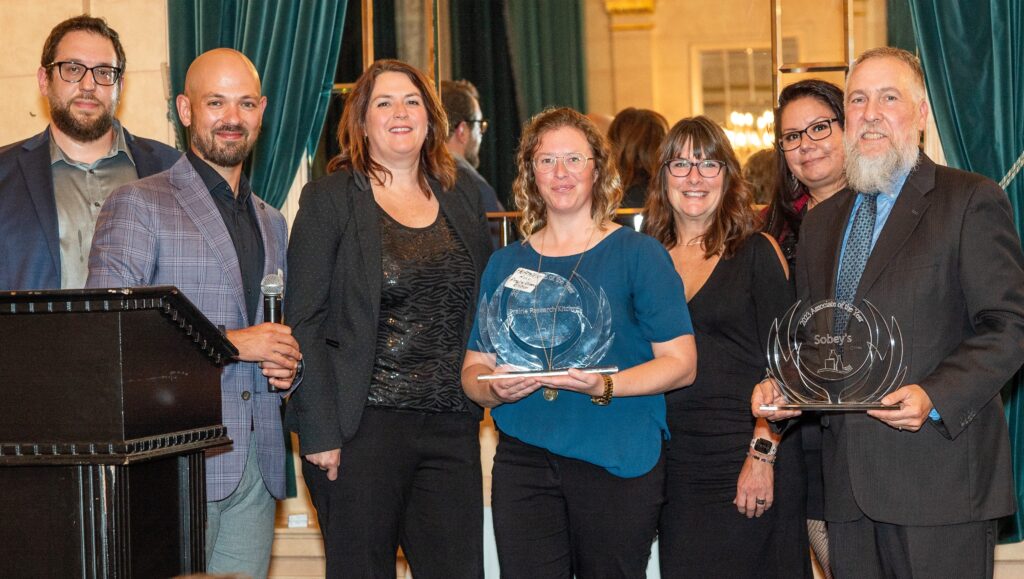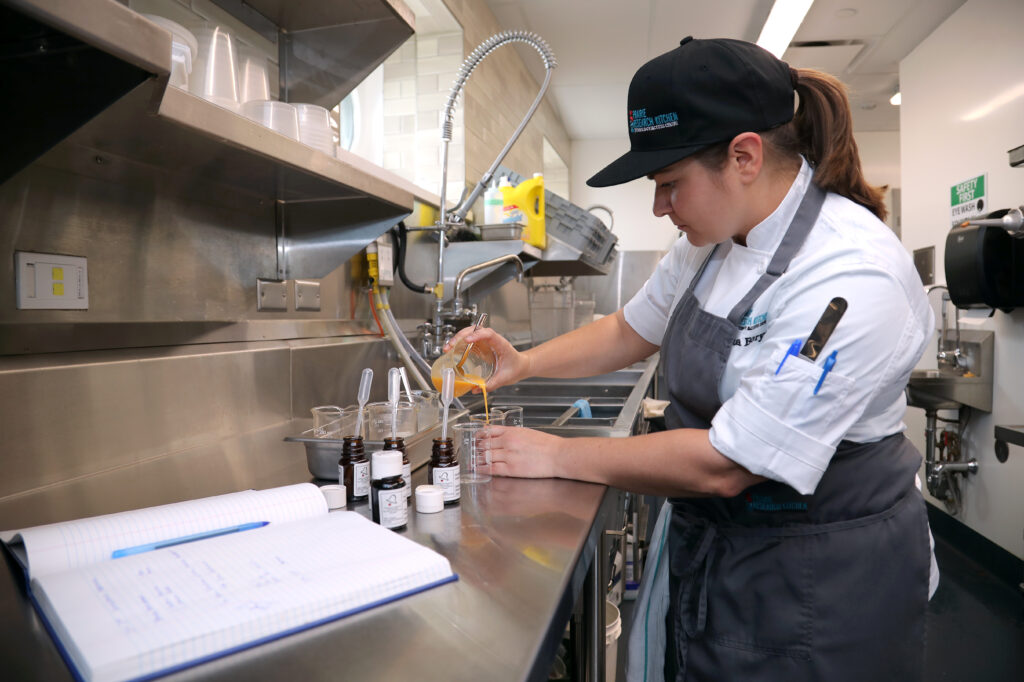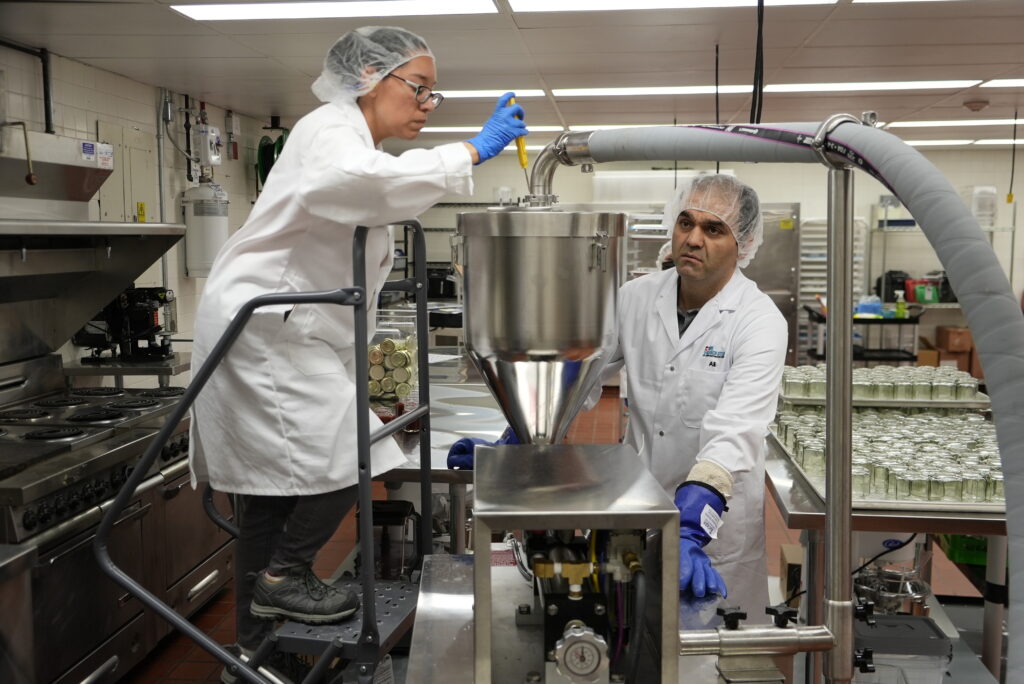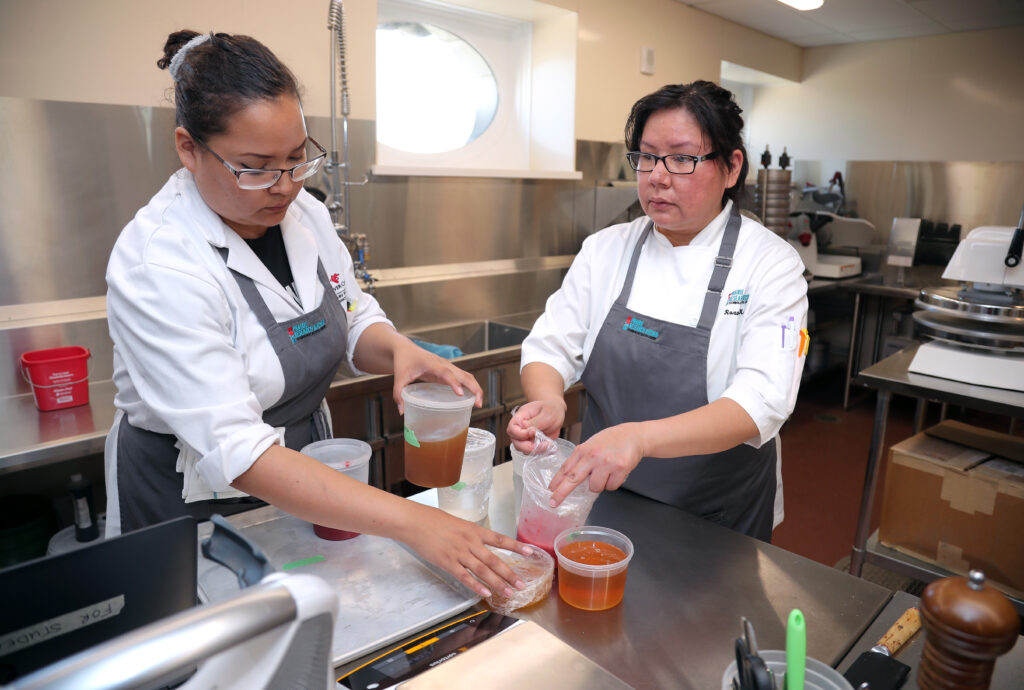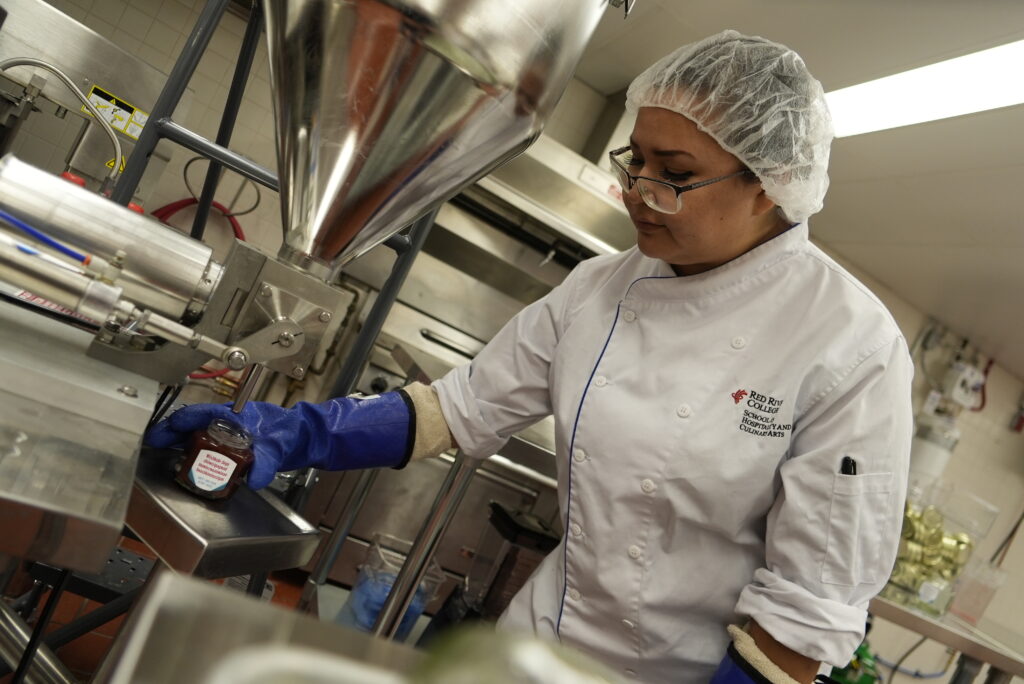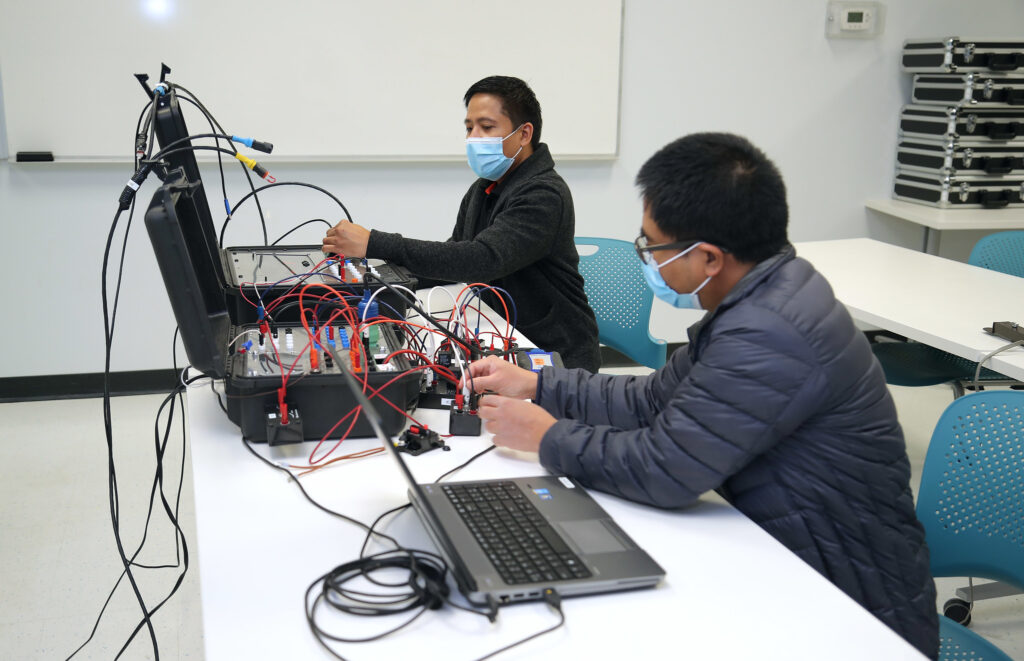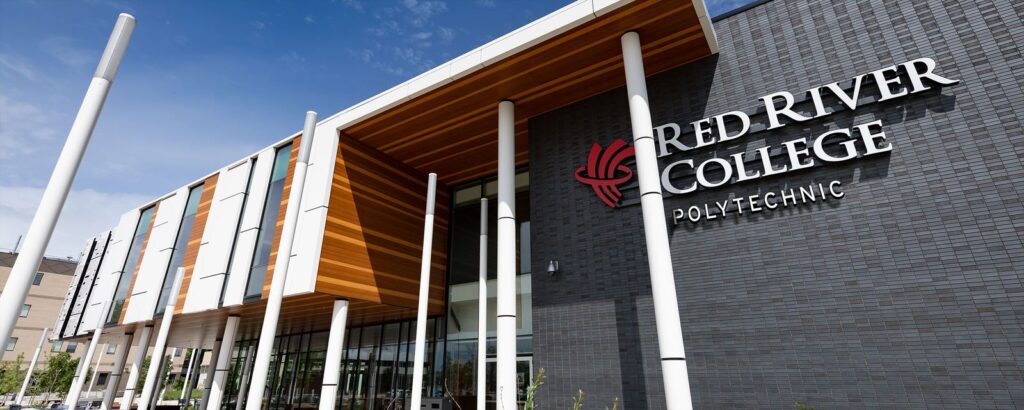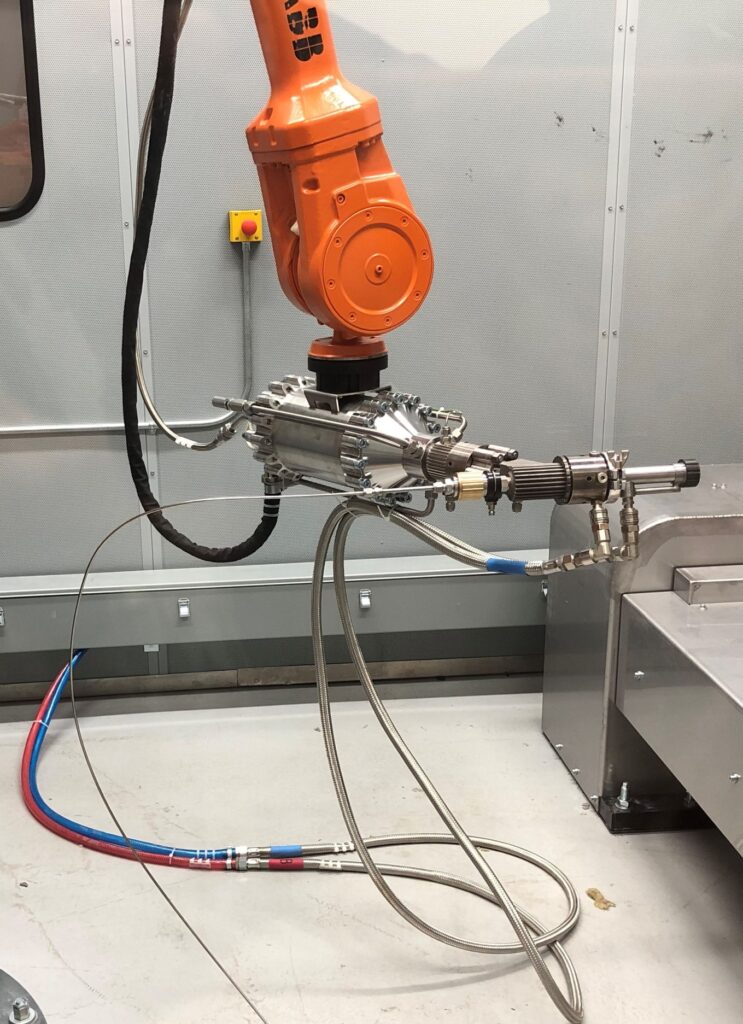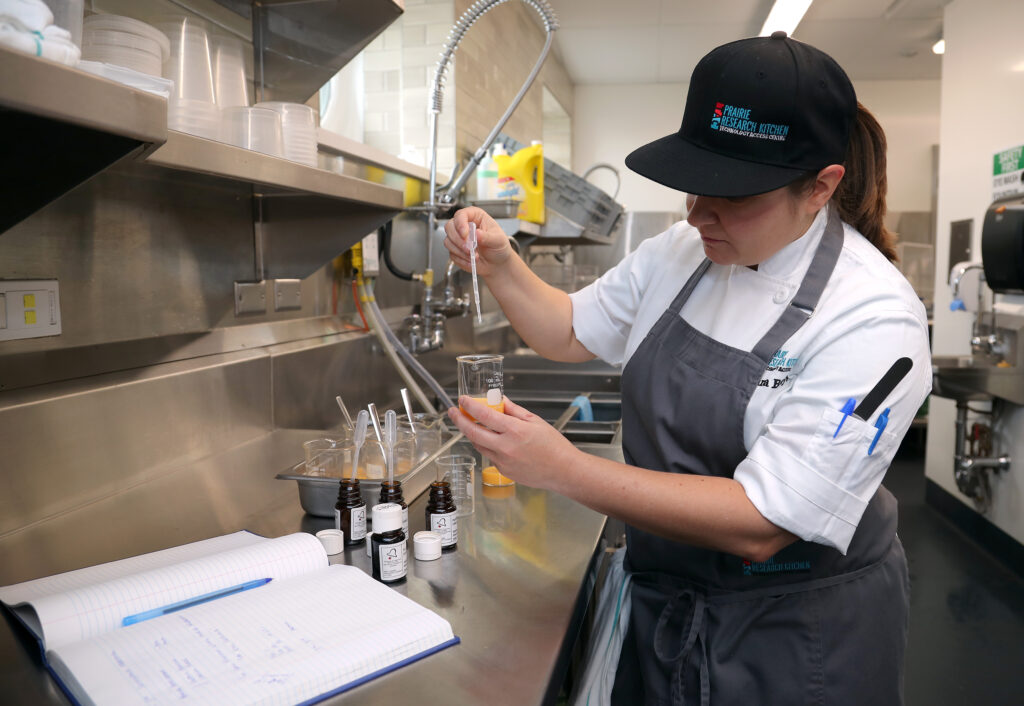PRK Food Donation to Main Street Project tops 500 kg
This summer, RRC Polytech’s Prairie Research Kitchen (PRK) challenged a group of Culinary Research co-op students to create delicious meals for some of our community’s most vulnerable, using only very limited ingredients – most of which may have been waste if solutions for repurposing weren’t discovered.
Their ability to repurpose perfectly good food generated through research projects and transform it into easy to serve dishes helped PRK eclipse a major milestone of 500 kg of food redirected to Main Street Project in an ongoing collaborative effort that helps feed the community while providing students with a valuable introduction to research.
“In a world that still wastes 40 per cent of the food produced, it’s imperative that Prairie Research Kitchen leads by example to demonstrate strategies that everyone in the food value chain can use to impact that number,” says Mavis McRae, Director, PRK. “As researchers, we understand that several trials and scale-ups are part of the research process. However, by working together with our clients to repurpose food that is left over from our work but still good to eat and redirect it to people in need, we are proving that multiple objectives can be reached simultaneously.”
Taste, texture and visual appeal are constant considerations in food development projects, so an extensive trial and error process is often required by the researchers at PRK to develop new products, techniques and recipes. With the consent from industry partners, Pulse Canada, engaging PRK to undertake product development, the research team has committed to recovering edible, high quality ingredients from their projects and testing their creativity by converting them into pre-packaged menu items that Main Street Project can distribute to those in need.
Pushing PRK past the 500 kg mark in donations was a product integration-based project with Pulse Canada designed to maximize the use of pea fibre generated from the pea protein process and deliver functional benefits to new formulations such as water holding and texture.
The latest delivery to Main Street Project featured remaining pea fiber bread and pea fiber chicken deli meat being converted into tasty breakfast themed items including a sweet, French toast-style strata (a type of layered breakfast casserole), a savory strata, and a chicken sausage.
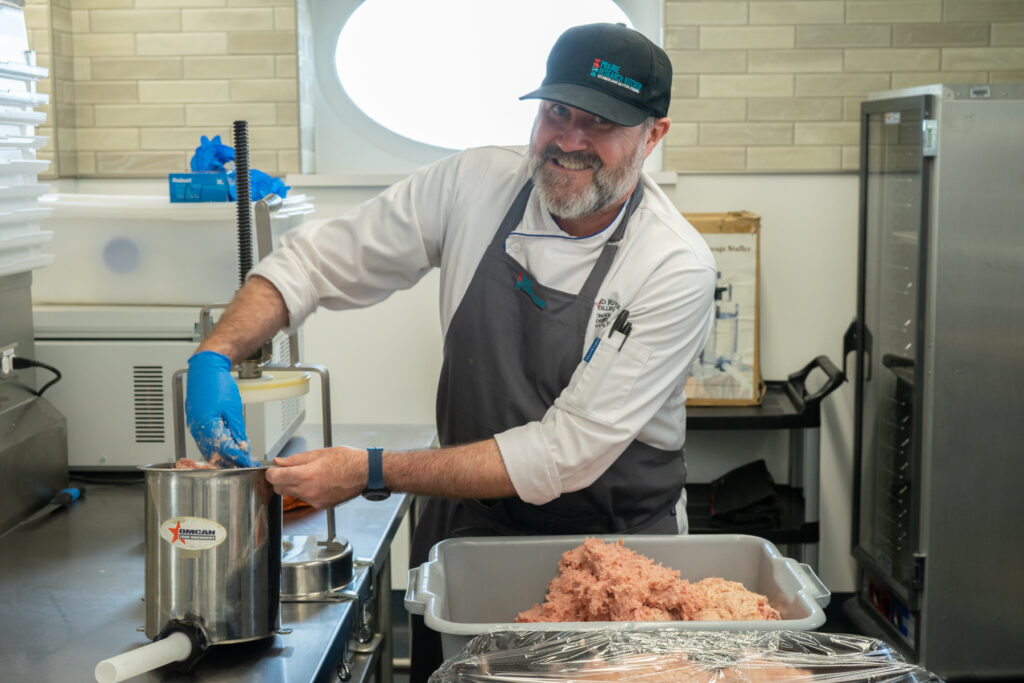
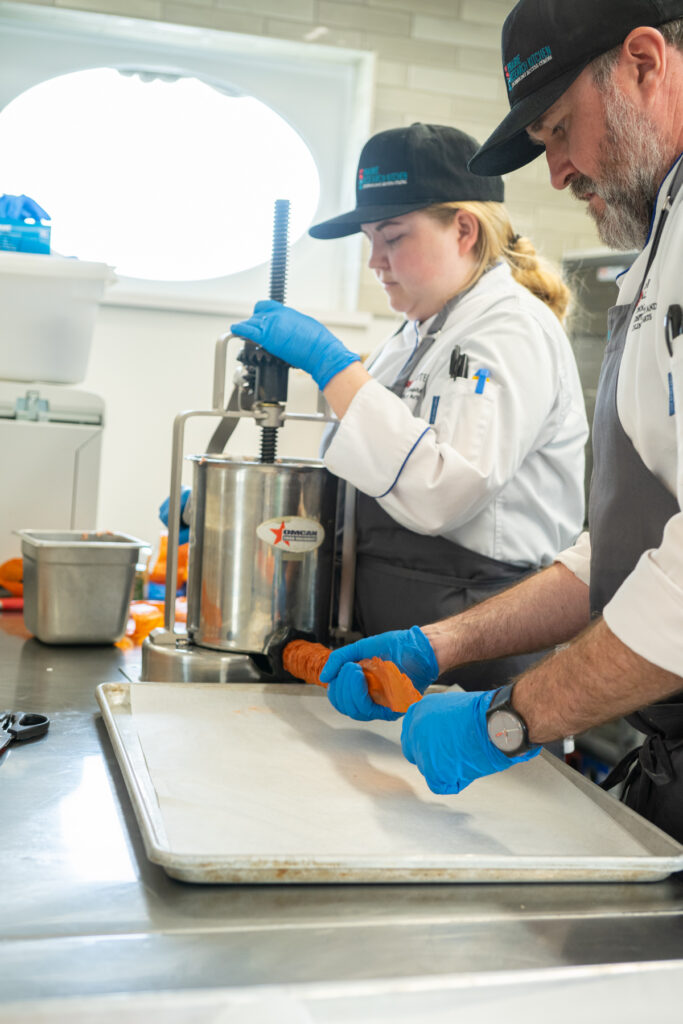
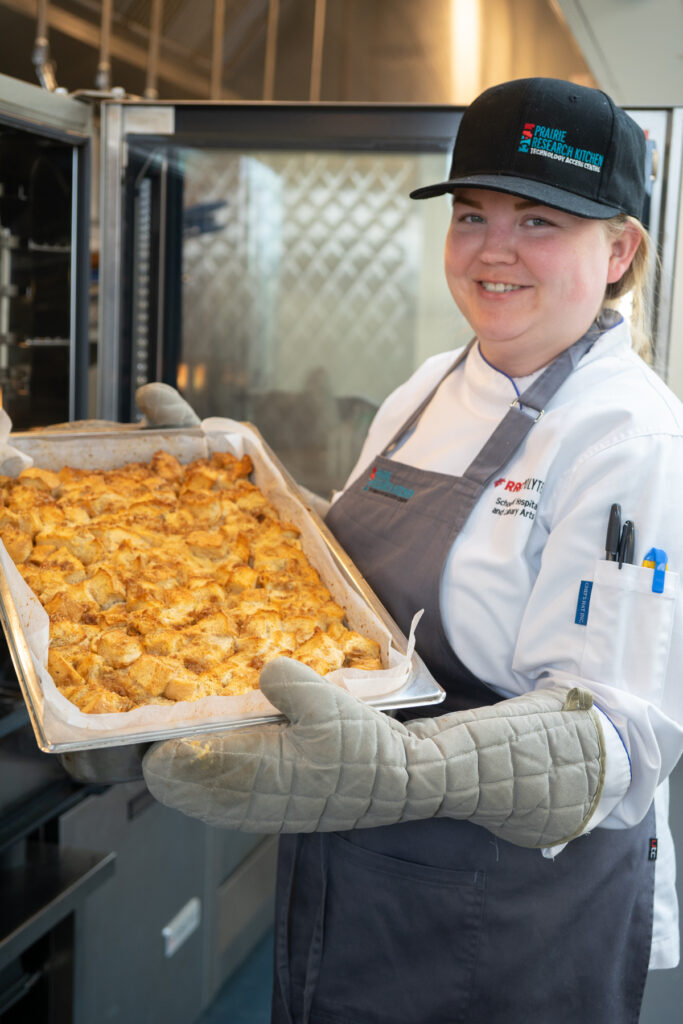
Chicken Strata Recipe
Yield: 1, 9” x 13” Deep Baking Dish
Allergens: Wheat/Gluten – Milk – Eggs – Sulphates
Ingredients Quantity (g)
| Oil, canola Onion, medium dice Celery, medium dice Bread, medium dice Deli chicken loaf, medium dice Mayonnaise Eggs Milk Pepper Water Butter, unsalted Parsley, chopped Chives, thinly sliced Optional: Cheese, grated | 10 150 150 1400 700 240 360 340 3 350 14 3.5 3.5 75 |
Method
1. Add oil in a medium saute pan. Add in celery and onion and cook on medium high heat for five minutes.
2. Add sauteed vegetables to bread, chicken, and mayonnaise. Mix well.
3. Whisk together eggs, milk, pepper, and water and pour over bread, chicken, mayonnaise, and vegetables.
4. Mix gently until everything is combined.
5. Rub butter on base and sides of a casserole dish.
6. Pour bread and chicken mixture into casserole dish.
7. Cover and refrigerate for 4-10 hours.
8. Remove from fridge, top with parsley and chives and bake at 350°F for 45-55 minutes.
9. Rest for 5 minutes and serve hot.
Other Instructions
If desired, grated cheese can be added to the strata at the 45-minute mark of baking. Bake for 10 minutes longer or until cheese is melted.
All donated food is not only safe and healthy but often transformed into elevated new items by student chefs through PRK’s Culinary Research co-op program. The project creates a fertile learning environment for the second year Culinary Arts students who are hired to take part, as it exposes them to a food science career path that many future chefs may not have known about or considered. Roxanne Kent jumped at the opportunity a few years back and is now working full time as a Research Assistant at PRK.
“This initiative challenges staff and students’ creativity and ability to create amazing menu items using limited resources – and it’s that innovative spirit that drives us as both chefs and scientists,” she says. “You learn the importance of documentation to ensure reproducibility; experience the rush of perfecting a formula, technique or recipe; and it’s personally rewarding when your hard work satisfies the client’s needs while helping the community at the same time.”
As the national association representing growers, traders and processors of dry peas, beans, lentils and chickpeas, Pulse Canada prioritizes sustainability in its vision to develop the future of food and partners with PRK to create marketable menu items that taste great and promote the nutritional and environmental benefits of pulses. Given their strong relationship and aligned values, Pulse Canada and PRK have worked together to redirect unused or left over food to Main Street Project for the last year and half, while still protecting all proprietary data. Previous donations included:
- Mini meatloaves: ground beef mixture with black beans
- Lentil breaded chicken: lentil flour, fully cooked breaded deep fried chicken thighs
- Red lentil flour pumpkin muffins
- Red lentil flour focaccia pizza
- Pork soup with pork/okara meatballs
- Red lentil pastry cups
- Lemon blueberry ice cream
- Plant-based coffee ice cream
“Our mission is to provide essential services to those experiencing homelessness and mental health issues in our community, so we are always searching for new partnerships, donors and volunteers,” says Jamil Mahmood, Executive Director at Main Street Project. “While elevating items for donation isn’t necessary, even small expressions of caring go a long way to positively impact the community we support, so we’re grateful for the continued support from Prairie Research Kitchen and its partners who are helping not only to feed but to change the perception of those who struggle.”
Partnerships are the core of College success as they enable RRC Polytech to extend resources, leverage strengths, accelerate progress in innovation and research, and reach the community. Located on the 11th floor of the Paterson Globalfoods Institute in the heart of the downtown, the Prairie Research Kitchen is proud to continue its unique work as a Technology Access Centre while building relationships that help the College play a revitalizing role in the evolution of the city.
